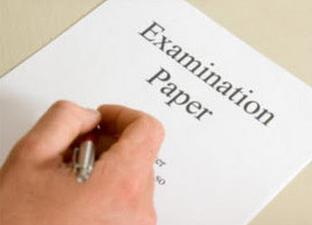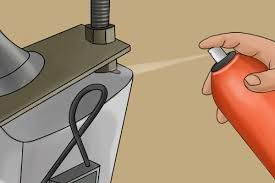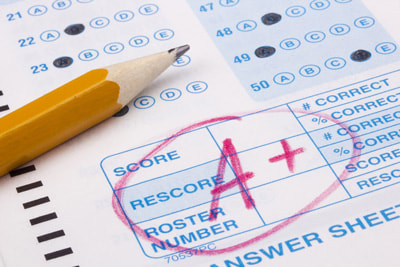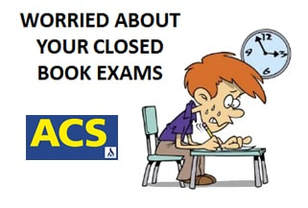CCN1 GAS EXAM PAPERS - Just £56 or £19.99 / Month
NEW EXAMS ADDED REGULARLYWe are constantly adding new examinations so our users have access to more test questions. Our exam bank has well over 1000 questions, and over 30 exam papers at any given time
|
LATEST EXAM QUESTIONSOur Mock ACS Gas Examinations are Constantly Updated so you only have access to the latest relevant mock examination questions.
Same day access after purchase |
OPEN & CLOSED BOOK EXAMSUnlimited Access, Unlimited Retakes, Live or Training Test Options, Access the Latest Open and Closed Book Written Mock Examinations. Multiple Choice, Multiple Answer and True False Exams
|
ARE YOU NEW TO THE GAS INDUSTRY AND CONCERNED ABOUT GETTING WORK
AFTER COMPLETING YOUR COURSE - CLICK HERE
AFTER COMPLETING YOUR COURSE - CLICK HERE
CCN1 - Mock Gas Exam Papers
If you are looking to study for your ACS Gas Exams or simply trial some Mock Exam Papers, CTSGroup have the biggest library of ACS Gas Mock Exam Papers covering all the CCN1 Core Subjects, CPA1, CKR1, CENWAT, HTR1, and MET1

WRITTEN ASSESSMENTS
All Subjects covered in the ACS Gas Assessments can be found here, with up to date subject questions. Each exam paper is preceded by a professional audio visual training presentation to provide up to date training on each subject. Mock Examinations can then be taken live in a timed environment just like the real thing, or downloaded and taken in your own time.
Questions are multiple choice with only one correct answer. Questions are worded in the same manner as the real examinations and give the student the opportunity to practice multiple choice gas exam questions.
All Subjects covered in the ACS Gas Assessments can be found here, with up to date subject questions. Each exam paper is preceded by a professional audio visual training presentation to provide up to date training on each subject. Mock Examinations can then be taken live in a timed environment just like the real thing, or downloaded and taken in your own time.
Questions are multiple choice with only one correct answer. Questions are worded in the same manner as the real examinations and give the student the opportunity to practice multiple choice gas exam questions.

PRACTICAL ASSESSMENTS
The vast majority of ACS Initial and Reassessment students fail on the practical elements despite being more concerened about the written exams. This area is much overlooked. After your written examinations you will be required to undertake practical assessments on each of the subjects to demonstrate your competence in each area. To assist our members, we have provided audio visual training on the practical assessments so that students are better prepared and confident when completing these in centre or college.
The vast majority of ACS Initial and Reassessment students fail on the practical elements despite being more concerened about the written exams. This area is much overlooked. After your written examinations you will be required to undertake practical assessments on each of the subjects to demonstrate your competence in each area. To assist our members, we have provided audio visual training on the practical assessments so that students are better prepared and confident when completing these in centre or college.

LIVE CHAT WITH GAS ASSESSORS
All of our members have direct access to chat live with an acs gas assessor or trainer during normal office hours and evenings/weekend on selected days. This enhances our members experience and provides direct support when needed, whether a simple questions or needing personal tuition (one to one) in one of our live classrooms, our help is on hand when you need it. This service is free of charge to our members, subscribers and customers.
All of our members have direct access to chat live with an acs gas assessor or trainer during normal office hours and evenings/weekend on selected days. This enhances our members experience and provides direct support when needed, whether a simple questions or needing personal tuition (one to one) in one of our live classrooms, our help is on hand when you need it. This service is free of charge to our members, subscribers and customers.

LIVE ONLINE CLASSROOM
Members can utilise our online classroom to study one to one with a gas training instructor. This can be extremely helpful for students struggling with a particular subject. Gas Academy and Subscribed students can arrange one to one personal audio visual training time with a qualified training instructor at no extra cost
Members can utilise our online classroom to study one to one with a gas training instructor. This can be extremely helpful for students struggling with a particular subject. Gas Academy and Subscribed students can arrange one to one personal audio visual training time with a qualified training instructor at no extra cost
CCN1 - Core Domestic Gas Safety Assessment - What to Expect
What to Expect
Gas Legislation | Written Examination Only
Gas Emergency Actions and Procedures | Written Examination Only
Characteristics of Combustion | Written Examination | Practical Assessment
Characteristics of Gas | Written Examination Only
Combustion Performance Analysis | Written Assessment | Practical Assessment
Checking and or Setting Meter Regulators | Written Examination | Practical Assessment
Operation and Siting of Emergency Controls | Written Examination
Gas Rating and Heat Inputs | Written Examination | Practical Assessment
Ventilation | Written Examination Open and Closed Book | Practical Assessment
Chimney and Fluing Standards | Written Examination Open and Closed Book | Practical Assessment
Chimney and Flue Testing | Written Examination | Practical Assessment
Installation of Pipe and Fittings | Written Examination | Practical Assessment
Checking & Setting Appliance Burner Pressures and Gas Rates | Written Examination | Practical Assessment
Gas Pipework Sizing | Written Examination Only
Gas Tightness Testing & Puging | Written Examination | Practical Assessment
Identification and Testing of Gas Controls & Safety Devices| Written Exam Open Book and Closed Book | Practical Assessment
Installation of Open, Balanced & Fan Assisted Flue Assemblies | Written Examination | Practical Assessment
Unsafe Situations/Use of Emergency Notices & Warning Labels | Written Examination | Practical Assessment
Re-Establishing Gas Supplies, Relighting & Commission Appliances | Written Examination | Practical Assessment
Additional Information on Written Examinations
The written examinations may include a number of open and closed book written assessments containing either multiple questions or true/false statements.. The Open Book assessments, which are usually multi choice examinations allow the use of approved reference material such as British Standards, or the Training Manual provided by the centre or college. The closed book tests contain questions on essential gas safety knowledge where reference material is not allowed. One or two of the assessments will require that you identify faults from a series of pictures (usually on fluing and chimney standards, pipework installation or similar
Additional Information on Practical Assessments
The practical competence assessments cover: Domestic Installations, Ventilation, Gas Safety Controls and Flues .You will be asked to undertake a series of Core Practical Assessments in the Bays Provided. These include
Test for Gas Tightness - with gas meter and appliances fitted- with no gas meter and no gas appliances fitted. You will also be asked to identify, trace and repair a gas escape
Installation of pipework and fittings - You will be required to identify the relevant standards in relation to pipework: passing through walls, supports and fixings, position in relation to other services, connection and disconnection, cross bonding- install copper and mild steel pipework (including longscrew) - use temporary continuity bond - purge an installation
Checking and/or setting meter regulators - you must be able to check standing and working pressures at the meter, and explain the correct procedures to be taken if incorrect reading are mesaured
Checking and setting appliance burner pressures and gas rates - You will be tested on checking and setting burner pressures and gas rates in accordance with appliance manufacturer's instructions
Re-establish existing gas supply and re-light appliances - You will be asked to re-establish an existing gas supply by completing a visual inspection of the system, purging, re-lighting appliances and checking for spillage at any open flued appliances
Characteristics of combustion - You must be able to identify visual signs of complete and incomplete combustion due to faults from the lack of primary air, the condition of the burner and its components. This will be through the use of a flue gas analyser and flame picture analysis
Identification of unsafe situations - You will be asked to identify and classify various unsafe situations as 'At Risk' or 'Immediately Dangerous' and be able to explain the correct gas emergency actions and procedures relevant to your findings
Emergency notices and warning labels - You will be asked to select the appropriate warning labels or notices to a selection of unsafe situations
Ventilation - You will be required to calculate the ventilation requirements for specified situations and select appropriate air vents/bricks- identify adequate or inadequate pre-selected air vents/bricks for specified situations
The operation and checking of appliance gas safety devices and controls - You will be asked to identify and explain the operation of gas taps, regulators, relay valves, cooker lid safety shut off valves, vitiation sensing devices, bi-metal strips, thermo-electric valves, liquid expansion valves, thermostats (mechanical and electrical), solenoid valves and multi-functional controls, and identify any controls not operating correctly. These may be on a test rig or within appliances.
Carbon Monoxide or Gas Alarm Identification and Testing - You will be asked to identify the correct siting and installation of carbon monoxide and gas alarms
Fluing and Chimney Standards - You will be asked to identify faults on various flue types of RS and OF installations, including, catchments, plastic, pre cast, brick / masonary, flue liner, flue boxes, terminals etc. You Will be required to correctly prepare for and complete a flue flow and spillage test.
MOP (Medium Pressure Meter) - You will be asked to identify faults on a Medium Pressure Gas Meter Installation, and advise on the correct testing procedureAppliancesEngineers who are undertaking assessments on Appliance elements will undergo additional written and practical assessments relating to the installation, commissioning and Inspection of those appliances.
CENWAT | Previously known as CEN1 and WAT1, this element covers Single and Multi Point Gas Water Heaters, Old and Modern Gas Boilers including Combination Boilers. Students will be asked to Install, Inspect, Fault Find and Commission these Appliances and their respective flue assemblies. The Assessment focuses primarily on visually inspecting gas faults and unsafe situations including location, clearances, signs of distress, ventilation and fluing. The student will have access the the Manufacturers Instructions for these Appliances.
CKR1 | This element covers Gas Hobs, Ovens, Free Standing Cookers, Grills, Range Cooking Appliances. and their respective flue assemblies where applicable. The Assessment focuses primarily on visually inspecting gas faults and unsafe situations including location, clearances, signs of distress, ventilation and fluing. The student will have access the the Manufacturers Instructions for these Appliances and will be asked to install a gas cooking appliance, including pipework, back plate, bayonet, and hose (if applicable). The student will then be asked to commission the gas appliance in accordance with regulation 26(9) and the manufacturers instructions.
HTR1 | This element covers Open Flue, Room Sealed and Flueless gas space heating appliances such as wall heaters, ILFE, DFE, Radient and convector gas heating Appliances. and their respective flue assemblies where applicable. The Assessment focuses primarily on visually inspecting gas faults and unsafe situations including location, clearances, signs of distress, ventilation and fluing. The student will have access the the Manufacturers Instructions for these Appliances and will be asked to install a gas space heating appliance, including pipework, service valve or elbow, closure plate, and flue connection. The student will then be asked to commission the gas appliance in accordance with regulation 26(9) and the manufacturers instructions including flue flow and spillage where necessary.
MET1 | This element covers the installation and commissioning of low and medium pressure gas Meters from G4/U6,E6 to U16/G10. Students must apply the correct industry safety procedures for installing the relevant meters and complete the required post installation and handover tests
Additional Appliance elements follow similar procedures, i.e. DAH1 (Warm Air units). Students completing their LPG Assessments will be expected to cover core and appliance assessments as with domestic natural gas above.
What Happens if i Fail
Industry Procedures Students must achieve 100% on their gas safety assessments both written and practical tests and to do this revision and preparation is paramount
Failed Written Assessments
When a student fails one or more written assessments they will have the opportunity to sit with the examiner to assess if this is due to lack of knowledge or simply misreading the questions. You will be issued with a caution and given 3 months to go away and study. There will be a retake for for these assessments. Failure again will result in your removal from the gas register for the areas you failed on and the cost of intensive training and re-sits.
Failed Practical Assessments
When a students fails one or more practical assessment they are deemed unfit to work on that area of gas. The student will have the opportunity to go away and train (preferably onsite under supervision) or in centre. Once again they will be given 3 months to train and return to re-sit these elements. You will be expected to pay a resit fee. After 3 months if the modules or not retaken and passed your competence for that element is removed from the gas register.
Who Fails What
Our own studies have shown that the vast majority of failures are a combination of theory and practical. Students failing any of the written elements generally have insufficient knowledge to pass the related practical assessment. Those that fail (and there are many) are often insufficiently prepared for the Assessments. Engineers rarely work on the scope of gas they are being assessed on and 5 years is a long time to miss out on industry changes and keeping up to date with the current standards.
Initial students who have completed gas courses which they have not sufficiently absorbed and revised for in their own time are regular casualties.
How to Pass Your ACS Gas Assessments
Passing the written and practical assessments is most often the result of insufficient preparation. The ACS Gas Examinations and Practical Assessments covered over 20 British Standards, and an expanse of related legislative material.
To pass your acs gas assessments you must be sufficiently prepared and confident. We could write a book on the silly mistakes nervous and under confident students make during these assessments. Whether you are new to the gas industry or a 30 year veteran, these assessments are very challenging.
To have the level of confidence required to avoid mistakes, you should give yourself time to prepare and study, especially if you have set your assessment date. We usually recommend starting your preparation a good 3 to 6 weeks or more prior to assessments. Less than that and you are on thin ice.
We provide the most essential preparation packs for initial and returning students. This small investment pays dividends during your assessments. Students can access the material for training, revision or reference for over 2 years after their assessments. CLICK HERE TO TRY FOR FREE
What to Expect
Gas Legislation | Written Examination Only
Gas Emergency Actions and Procedures | Written Examination Only
Characteristics of Combustion | Written Examination | Practical Assessment
Characteristics of Gas | Written Examination Only
Combustion Performance Analysis | Written Assessment | Practical Assessment
Checking and or Setting Meter Regulators | Written Examination | Practical Assessment
Operation and Siting of Emergency Controls | Written Examination
Gas Rating and Heat Inputs | Written Examination | Practical Assessment
Ventilation | Written Examination Open and Closed Book | Practical Assessment
Chimney and Fluing Standards | Written Examination Open and Closed Book | Practical Assessment
Chimney and Flue Testing | Written Examination | Practical Assessment
Installation of Pipe and Fittings | Written Examination | Practical Assessment
Checking & Setting Appliance Burner Pressures and Gas Rates | Written Examination | Practical Assessment
Gas Pipework Sizing | Written Examination Only
Gas Tightness Testing & Puging | Written Examination | Practical Assessment
Identification and Testing of Gas Controls & Safety Devices| Written Exam Open Book and Closed Book | Practical Assessment
Installation of Open, Balanced & Fan Assisted Flue Assemblies | Written Examination | Practical Assessment
Unsafe Situations/Use of Emergency Notices & Warning Labels | Written Examination | Practical Assessment
Re-Establishing Gas Supplies, Relighting & Commission Appliances | Written Examination | Practical Assessment
Additional Information on Written Examinations
The written examinations may include a number of open and closed book written assessments containing either multiple questions or true/false statements.. The Open Book assessments, which are usually multi choice examinations allow the use of approved reference material such as British Standards, or the Training Manual provided by the centre or college. The closed book tests contain questions on essential gas safety knowledge where reference material is not allowed. One or two of the assessments will require that you identify faults from a series of pictures (usually on fluing and chimney standards, pipework installation or similar
Additional Information on Practical Assessments
The practical competence assessments cover: Domestic Installations, Ventilation, Gas Safety Controls and Flues .You will be asked to undertake a series of Core Practical Assessments in the Bays Provided. These include
Test for Gas Tightness - with gas meter and appliances fitted- with no gas meter and no gas appliances fitted. You will also be asked to identify, trace and repair a gas escape
Installation of pipework and fittings - You will be required to identify the relevant standards in relation to pipework: passing through walls, supports and fixings, position in relation to other services, connection and disconnection, cross bonding- install copper and mild steel pipework (including longscrew) - use temporary continuity bond - purge an installation
Checking and/or setting meter regulators - you must be able to check standing and working pressures at the meter, and explain the correct procedures to be taken if incorrect reading are mesaured
Checking and setting appliance burner pressures and gas rates - You will be tested on checking and setting burner pressures and gas rates in accordance with appliance manufacturer's instructions
Re-establish existing gas supply and re-light appliances - You will be asked to re-establish an existing gas supply by completing a visual inspection of the system, purging, re-lighting appliances and checking for spillage at any open flued appliances
Characteristics of combustion - You must be able to identify visual signs of complete and incomplete combustion due to faults from the lack of primary air, the condition of the burner and its components. This will be through the use of a flue gas analyser and flame picture analysis
Identification of unsafe situations - You will be asked to identify and classify various unsafe situations as 'At Risk' or 'Immediately Dangerous' and be able to explain the correct gas emergency actions and procedures relevant to your findings
Emergency notices and warning labels - You will be asked to select the appropriate warning labels or notices to a selection of unsafe situations
Ventilation - You will be required to calculate the ventilation requirements for specified situations and select appropriate air vents/bricks- identify adequate or inadequate pre-selected air vents/bricks for specified situations
The operation and checking of appliance gas safety devices and controls - You will be asked to identify and explain the operation of gas taps, regulators, relay valves, cooker lid safety shut off valves, vitiation sensing devices, bi-metal strips, thermo-electric valves, liquid expansion valves, thermostats (mechanical and electrical), solenoid valves and multi-functional controls, and identify any controls not operating correctly. These may be on a test rig or within appliances.
Carbon Monoxide or Gas Alarm Identification and Testing - You will be asked to identify the correct siting and installation of carbon monoxide and gas alarms
Fluing and Chimney Standards - You will be asked to identify faults on various flue types of RS and OF installations, including, catchments, plastic, pre cast, brick / masonary, flue liner, flue boxes, terminals etc. You Will be required to correctly prepare for and complete a flue flow and spillage test.
MOP (Medium Pressure Meter) - You will be asked to identify faults on a Medium Pressure Gas Meter Installation, and advise on the correct testing procedureAppliancesEngineers who are undertaking assessments on Appliance elements will undergo additional written and practical assessments relating to the installation, commissioning and Inspection of those appliances.
CENWAT | Previously known as CEN1 and WAT1, this element covers Single and Multi Point Gas Water Heaters, Old and Modern Gas Boilers including Combination Boilers. Students will be asked to Install, Inspect, Fault Find and Commission these Appliances and their respective flue assemblies. The Assessment focuses primarily on visually inspecting gas faults and unsafe situations including location, clearances, signs of distress, ventilation and fluing. The student will have access the the Manufacturers Instructions for these Appliances.
CKR1 | This element covers Gas Hobs, Ovens, Free Standing Cookers, Grills, Range Cooking Appliances. and their respective flue assemblies where applicable. The Assessment focuses primarily on visually inspecting gas faults and unsafe situations including location, clearances, signs of distress, ventilation and fluing. The student will have access the the Manufacturers Instructions for these Appliances and will be asked to install a gas cooking appliance, including pipework, back plate, bayonet, and hose (if applicable). The student will then be asked to commission the gas appliance in accordance with regulation 26(9) and the manufacturers instructions.
HTR1 | This element covers Open Flue, Room Sealed and Flueless gas space heating appliances such as wall heaters, ILFE, DFE, Radient and convector gas heating Appliances. and their respective flue assemblies where applicable. The Assessment focuses primarily on visually inspecting gas faults and unsafe situations including location, clearances, signs of distress, ventilation and fluing. The student will have access the the Manufacturers Instructions for these Appliances and will be asked to install a gas space heating appliance, including pipework, service valve or elbow, closure plate, and flue connection. The student will then be asked to commission the gas appliance in accordance with regulation 26(9) and the manufacturers instructions including flue flow and spillage where necessary.
MET1 | This element covers the installation and commissioning of low and medium pressure gas Meters from G4/U6,E6 to U16/G10. Students must apply the correct industry safety procedures for installing the relevant meters and complete the required post installation and handover tests
Additional Appliance elements follow similar procedures, i.e. DAH1 (Warm Air units). Students completing their LPG Assessments will be expected to cover core and appliance assessments as with domestic natural gas above.
What Happens if i Fail
Industry Procedures Students must achieve 100% on their gas safety assessments both written and practical tests and to do this revision and preparation is paramount
Failed Written Assessments
When a student fails one or more written assessments they will have the opportunity to sit with the examiner to assess if this is due to lack of knowledge or simply misreading the questions. You will be issued with a caution and given 3 months to go away and study. There will be a retake for for these assessments. Failure again will result in your removal from the gas register for the areas you failed on and the cost of intensive training and re-sits.
Failed Practical Assessments
When a students fails one or more practical assessment they are deemed unfit to work on that area of gas. The student will have the opportunity to go away and train (preferably onsite under supervision) or in centre. Once again they will be given 3 months to train and return to re-sit these elements. You will be expected to pay a resit fee. After 3 months if the modules or not retaken and passed your competence for that element is removed from the gas register.
Who Fails What
Our own studies have shown that the vast majority of failures are a combination of theory and practical. Students failing any of the written elements generally have insufficient knowledge to pass the related practical assessment. Those that fail (and there are many) are often insufficiently prepared for the Assessments. Engineers rarely work on the scope of gas they are being assessed on and 5 years is a long time to miss out on industry changes and keeping up to date with the current standards.
Initial students who have completed gas courses which they have not sufficiently absorbed and revised for in their own time are regular casualties.
How to Pass Your ACS Gas Assessments
Passing the written and practical assessments is most often the result of insufficient preparation. The ACS Gas Examinations and Practical Assessments covered over 20 British Standards, and an expanse of related legislative material.
To pass your acs gas assessments you must be sufficiently prepared and confident. We could write a book on the silly mistakes nervous and under confident students make during these assessments. Whether you are new to the gas industry or a 30 year veteran, these assessments are very challenging.
To have the level of confidence required to avoid mistakes, you should give yourself time to prepare and study, especially if you have set your assessment date. We usually recommend starting your preparation a good 3 to 6 weeks or more prior to assessments. Less than that and you are on thin ice.
We provide the most essential preparation packs for initial and returning students. This small investment pays dividends during your assessments. Students can access the material for training, revision or reference for over 2 years after their assessments. CLICK HERE TO TRY FOR FREE
CTSGroup, 272 Bath Street, Glasgow, G2 4JR T: 01413541545 E: [email protected] Gas Reg: 229998
Copyright CTSGroup © 2016
Copyright CTSGroup © 2016





